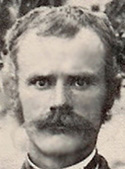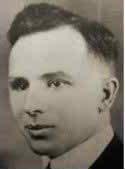Do you or someone you love have sleep apnea? If you do, then you know just how difficult it can be for them to get a good night’s sleep. Of course, it is also often hard for others in the house to sleep well because of the snoring. Those who are often tired and aren’t certain why might find that sleep apnea is the culprit. Fortunately, there are various ways to help treat this type of condition today. Some of those ways to potentially help with sleep apnea are dental strategies, which we will discuss below.
Use of Oral Appliances
One of the first options to consider with your dentist will be oral appliances. Using certain types of appliances can often help with sleep apnea problems. Some of the most common types of appliances used for this purpose include mandibular advancement devices and mouthpieces that retain the tongue.
The MADs are custom-made for each person. They look very similar to a mouthguard that would normally be used for sports. The mouthpieces work simply, but they are quite effective. They will help to ensure the lower jaw and tongue are in a position that allows the airway to remain open. This is helpful since a lot of the problems with sleep apnea are due to the position of the tongue and lower jaw.
The tongue-retaining mouthpiece is another appliance that could work. It helps to ensure the tongue is kept in the correct position and that it doesn’t fall into the airway when sleeping. It should also help to prevent you from grinding your teeth.
Orthodontics Treatment
Many people who have sleep apnea suffer from the problem because they have smaller lower jaws. The smaller jaw could allow the tongue to slip into the airway. This will cause an obstruction and cause the person to snore. Typically, dentists are going to want to take care of this type of problem as early as possible. If it is not fixed at an early age, patients tend to see their mild symptoms get worse over time. This can cause them to develop sleep apnea when they get older.
Frenectomy
When someone has a “tongue tie”, it means that their tongue has a restricted range of motion. The symptoms can vary, but in some cases, they are severe. A lot of people don’t realize they have a tongue tie until it starts to affect other aspects of their life, including sleeping. Having a frenectomy conducted by a dental professional can help to reverse this problem. It is a relatively simple procedure.
Myofunctional Therapy
Those who have trouble swallowing, speaking, and breathing will often have sleep apnea. These are exercises that help to retrain the muscles in the tongue and face, so they can make breathing through the nose easier while sleeping. This therapy has the potential to be a huge benefit to those who suffer from sleep apnea, but it will take some time to work. You also need to be sure you are performing the exercises correctly.
Sleep apnea is no fun. It can cause serious problems with a person’s health over time, and it is not something that should be ignored.
Anyone who suffers from sleep apnea should look for a solution that will help them (and those around them) get to sleep at night. Take some time to speak with your dentist about the options available, so you can find a solution that helps. Get in touch with Foutz Family Dentistry today to talk about your sleep apnea case and to find the right strategies to use.










